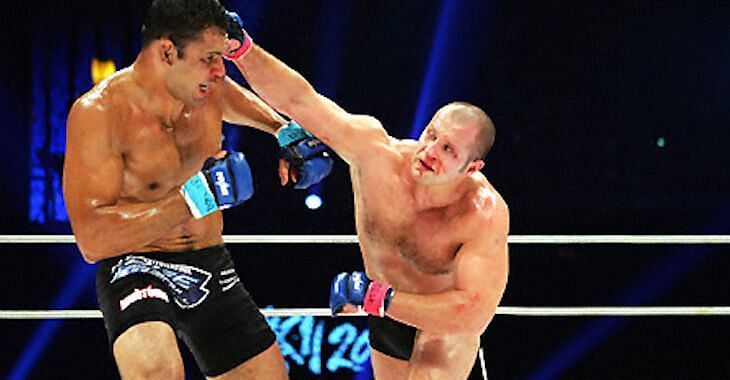
The truth about Fedor Emelianenko
Fedor Emelianenko. In the 25 year history of mixed martial arts, no other name brings up quite so much discussion as the legendary Russian fighter, and yet in 2019 – as unbelievable as this sounds for long-term MMA fans – there are a lot of newer fans who don’t even understand why ‘The Last Emperor’ is a big deal and why his name is still spoken with such reverence.
So who is Fedor Emelianenko? Why is Bellator still pushing him as a major attraction? Should we really care about his upcoming fight with Ryan Bader at Bellator 214? And will he ever fight in the UFC? Let’s explore further.
Why is Fedor such a big deal?
To understand why Fedor Emelianenko is such a big deal, you’ve first got to understand the state of MMA in the early to mid-2000s. The UFC was not the juggernaut it is today, and even after the purchase of the promotion by the Fertitta-backed Zuffa in 2001, MMA in the US still struggled from both a financial standpoint and also from the point of mainstream acceptance.
The same couldn’t be said for MMA in Japan. Due to the sport’s close links with the ultra-popular world of pro-wrestling, MMA was always treated as a bigger deal in Japan than it was in the US, and no promotion was more popular than PRIDE. Mixing some of the best fighters in the world together with a pro-wrestling style of booking, PRIDE became massive in the early 2000s, and by around 2003, it played host to most of the world’s best fighters.
This was particularly prevalent in the Heavyweight division. The UFC had some great fighters like Randy Couture and Pedro Rizzo, but the general consensus was that PRIDE had the world’s greatest Heavyweights. And by 2002, the consensus top Heavyweight in the world was Antonio Rodrigo Nogueira. He’d beaten literally every man thrown in front of him, including UFC legend Mark Coleman, and generally looked unstoppable.
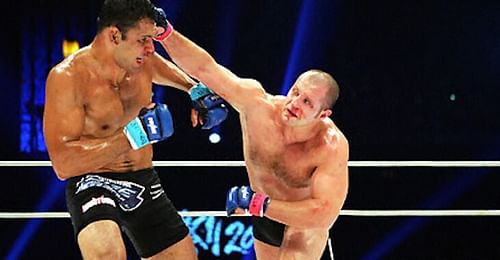
Nogueira would fall, however, in 2003, to a Russian Sambo expert named Fedor Emelianenko. Where every other opponent of the Brazilian Jiu-Jitsu expert had been unable to survive on the ground, Fedor thrived, dominating Nogueira with punches from inside the guard. The result sent a seismic shock through the world of MMA and meant that Fedor was now considered the best fighter on the planet.
From there, Fedor simply dominated every fighter put in front of him, and seemingly had no weaknesses. He could grapple and strike equally well, had insane cardio considering he didn’t look like a great athlete, and his chin appeared to be made of granite too. By the end of 2005, he’d amassed a record of 23-1, with his lone loss coming via a cut stoppage prior to his PRIDE run.
By 2006 though, the UFC had exploded in popularity and suddenly, everyone was talking about what might happen if the UFC’s best got to face PRIDE’s best. 2006 was also the year that PRIDE got themselves into hot water due to links to organized crime – another article entirely – and by the end of that year, the word was that PRIDE vs. UFC dream matches weren’t that far off becoming a reality.
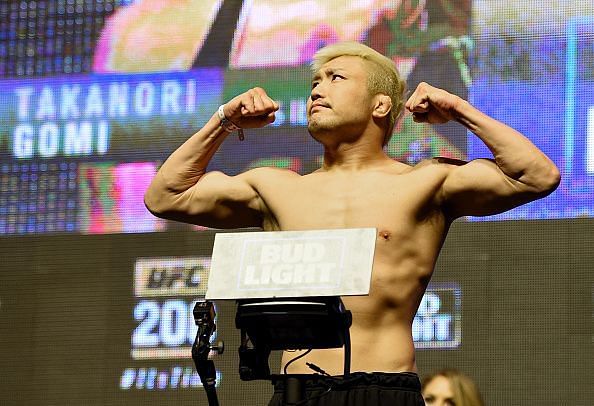
Sure enough, the UFC managed to purchase PRIDE in early 2007 and immediately began bringing all of the Japanese promotion’s top fighters across to the USA, where they saw mixed results. The likes of Quinton Jackson and Mauricio Rua won UFC gold, while some – Takanori Gomi, Wanderlei Silva, Mirko Cro Cop – struggled greatly.
So why is Fedor different from those fighters?
Following the purchase of PRIDE, the UFC were largely able to bring over every big name from the Japanese promotion except one – Fedor. His management team – and fellow MMA promotion – M-1 Global demanded to co-promote any event involving the Russian, and the UFC simply weren’t willing to match the terms. And so Fedor never entered into the Octagon, and thus kept a lot of the mystique from the PRIDE days that Nogueira, Silva, Gomi and the others lost in the UFC.
Part of what kept Fedor’s mystique was that big-name UFC fighters were actually willing to leave the UFC to fight him. In 2007, UFC champion Randy Couture tried to escape his contract to fight the Russian (he eventually failed and returned to the UFC) but former champions Tim Sylvia and Andrei Arlovski managed to secure fights with him in the short-lived Affliction promotion – and were beaten brutally.
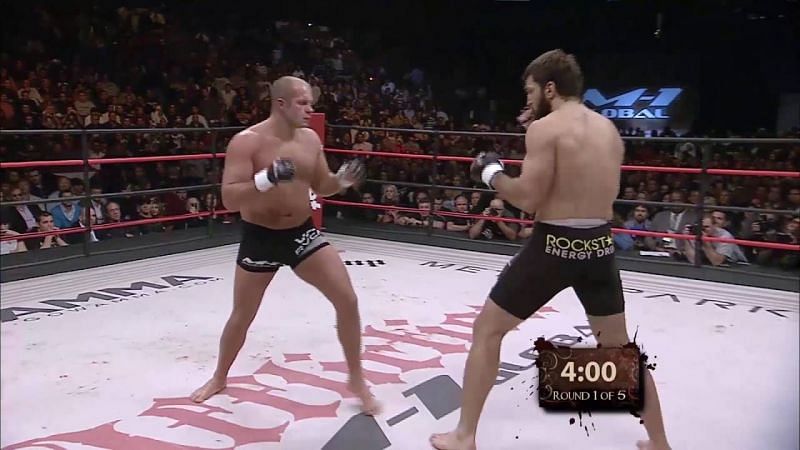
Once Affliction closed its doors in 2009 it looked again like Fedor might find himself in the UFC, but instead, he signed with rival promotion StrikeForce. And after a successful debut that saw him knock out Brett Rogers, that famous mystique was finally broken as Fabricio Werdum shocked the world and submitted him with a triangle choke in June 2010.
From there the downfall was swift. Fedor was defeated by Antonio Silva in a one-sided mauling in early 2011 and then – under the Zuffa banner, finally, after the UFC’s parent company purchased StrikeForce – he was knocked out by Dan Henderson, ending his run in the US. It appeared like Fedor’s time at the top was over, and the Russian managed three further wins before retiring in mid-2012.
Why did he come back?
Despite looking miles past his prime even in those final wins, some fans were still clamoring to see Fedor fight again, particularly in the UFC. Midway through 2015 rumors began to leak out that the Russian was considering a comeback, and unsurprisingly, those rumors suggested that he was negotiating with the UFC to finally make his debut there, with the co-promotion demand now largely forgotten.
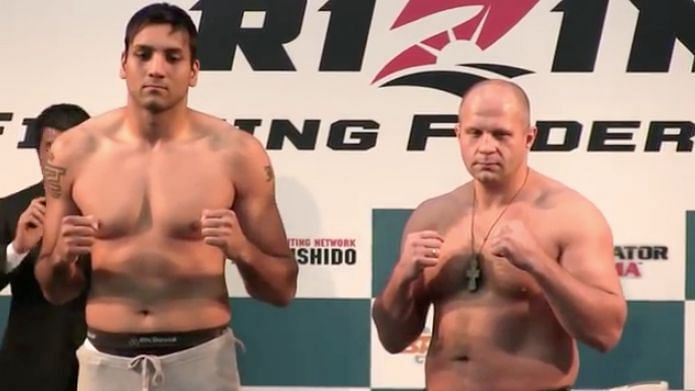
Once again though, UFC fans would miss out. Fedor signed for a one-off fight with new Japanese promotion Rizin – submitting kickboxer Jaideep Singh – and then fought for the smaller Fight Nights Global promotion midway through 2016 against former UFC Light-Heavyweight Fabio Maldonado. It was a disastrous fight for Fedor, as he appeared to be out on his feet in the first round following a combination from the Brazilian, but held on to win a contentious split decision.
Strangely enough, the fight was actually aired on UFC Fight Pass – the closest the Russian has ever been to fighting for the world’s biggest promotion. A deal with Bellator that saw him hook up with his former StrikeForce promoter Scott Coker came soon after, and in June 2017 he was unfortunately knocked out by former UFC contender Matt Mitrione after a wild double knockdown.
Since then though he’s fought again – in somewhat of a dream match, albeit ten years too late - against former UFC champ Frank Mir in the opening round of StrikeForce’s Heavyweight Grand Prix. This time Fedor survived an early barrage from Mir before turning the tables, knocking him out in the first round. The fight was fantastic from an action standpoint but hardly painted either man as a contender in 2018.
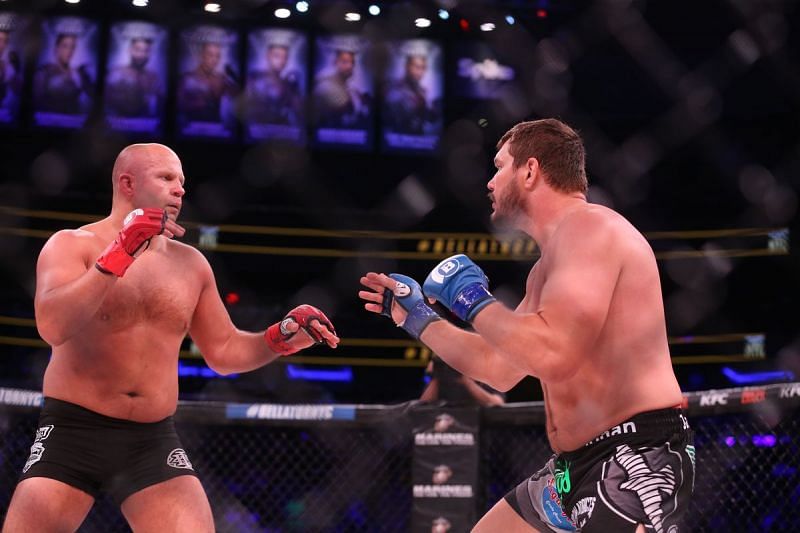
October will now see him face Chael Sonnen in the semi-finals of the Grand Prix.
Was he ever that good to begin with?
The fact that Fedor never fought in the UFC means that in general, the question of how good he truly still split the MMA fanbase like few other topics. Ask hardcore UFC fans and they’d parrot the opinion of Dana White – that Fedor was somewhat of a fraud, as he never fought the best of the best in the UFC and thus can’t be considered an all-time great like Anderson Silva, Georges St-Pierre or Randy Couture.
That plainly isn’t true, though. Fedor did fight the best of the best – at least in terms of the best fighters of his era. He defeated Nogueira, Herring, Coleman, Cro Cop, Randleman, Sylvia, and Arlovski – a who’s who of mid-2000’s Heavyweights – and really the only missing names are Couture and Mir – who he eventually fought anyway.
Sure, he didn’t fight the likes of Brock Lesnar, Alistair Overeem, Cain Velasquez or Junior Dos Santos, but I’d argue those fighters were part of the next generation, similarly to Antonio Silva and Fabricio Werdum. Realistically had Fedor joined the UFC in 2007 at the first opportunity, he probably would’ve held the Heavyweight title for a time. Had he joined in 2009, he probably would’ve fallen to someone like Velasquez – and then been remembered in a similar way to a Nogueira or Gomi, as a once-great fighter whose prime came outside of the UFC.
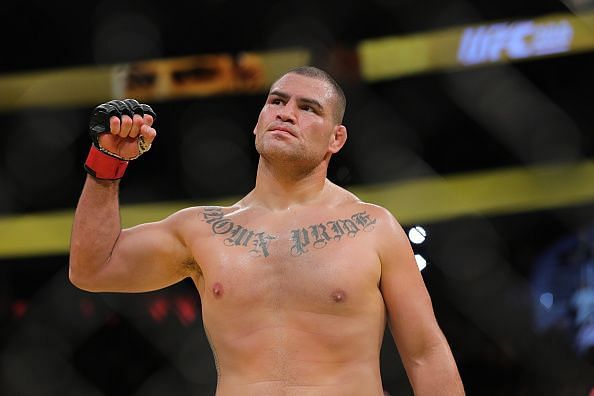
Essentially, there’s still an argument for Fedor as the best Heavyweight of all time, but there’s also a clear argument for others, too. For me what’s indisputable is that he was the best Heavyweight of his generation. But of course, that doesn’t mean he should be fighting in 2018 in Bellator.
Does he have anything left now?
To be completely frank, it’s hard to suggest an argument that he’s got a lot left in the tank now. Fedor was looking past his prime when he initially retired in 2012 and this current comeback hasn’t suggested otherwise. He was almost knocked out by Maldonado – a man not known for his punching power – and then lost to an average Heavyweight in Mitrione. Sure, he beat Mir and Sonnen, but both of those fighters were equally past their primes and both fights were highly sloppy.
But Bellator is renowned as a promotion for using legendary fighters who are way past their prime – they even booked Ken Shamrock vs. Royce Gracie in 2016 – and it’s not like Fedor is as far past his prime as either of those men. His next opponent, Ryan Bader, is most certainly not out of his prime and he’s a genuinely dangerous fighter. But he’s not invincible and doesn’t have the best chin – so for a man with the punching power of Fedor, beating ‘Darth’ isn’t an impossible task.
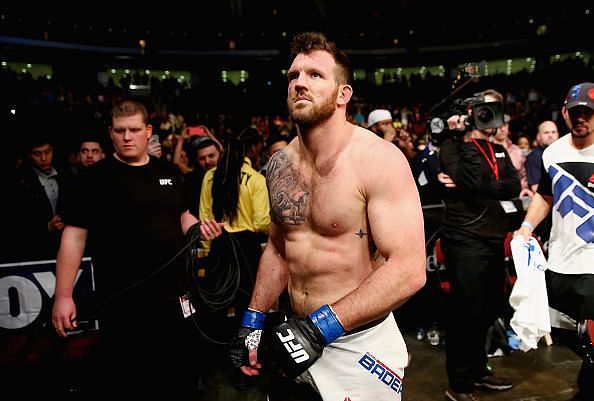
Having said that, Bader is a fighter who probably would’ve given the 2005 Fedor a tricky fight due to his wrestling and athleticism. To see the 2019 version of Fedor face off with him could prove to be disturbing. But of course, only Fedor decides whether he still wants to fight or not.
And will we ever see him in the UFC?
In all honesty, the answer is no. That boat probably sailed when Fedor chose not to sign with them in 2015 – when he was 39 and nobody knew quite how far out of his prime he’d fallen. As time moves on, the number of fans who still buy into the mystique of Fedor is getting smaller – and is probably shrinking with each Bellator fight, too.
He’ll always be a darling of hardcore fans who remember his prime days in PRIDE, but at this stage, it simply wouldn’t be worth the UFC paying him big money to fight when he’s clearly not a contender anymore. Even the fighters who would’ve been considered “dream matches” for him, like Velasquez, Dos Santos and Overeem are nearing the end of their careers too. It simply wouldn’t make sense for either party a decade on from their first negotiation.
So should we still care about him?
For longtime fans of the sport, it’s certainly not my job to suggest that Fedor vs. Bader isn’t worth watching. Realistically it likely won’t be a great fight, but for a nostalgia trip hopefully it’ll come off as well as Fedor’s fun-if-sloppy fight with Mir did, and hopefully, it won’t see the Russian get violently finished.
For newer fans wondering whether to watch and why Fedor is and was such a big deal, though, I’d suggest skipping the Bader fight altogether. I’d suggest getting hold of a UFC Fight Pass subscription and checking out his old PRIDE and Affliction fights – they’re all there in the archives – before making a judgment on whether he’s an all-time great. The likelihood is that the answer would definitely be a “yes”.
In conclusion then? Only a fool would deny the impact of Fedor Emelianenko on the world of MMA as a whole, and only a fool would deny his greatness in his prime. But you’d also be a fool to believe he’s still got a lot to offer now, in 2019, a decade past his best years.